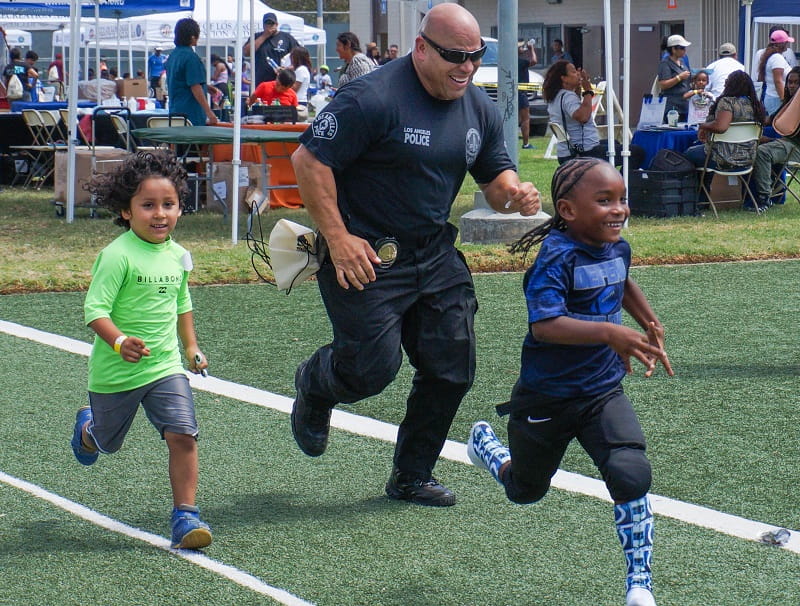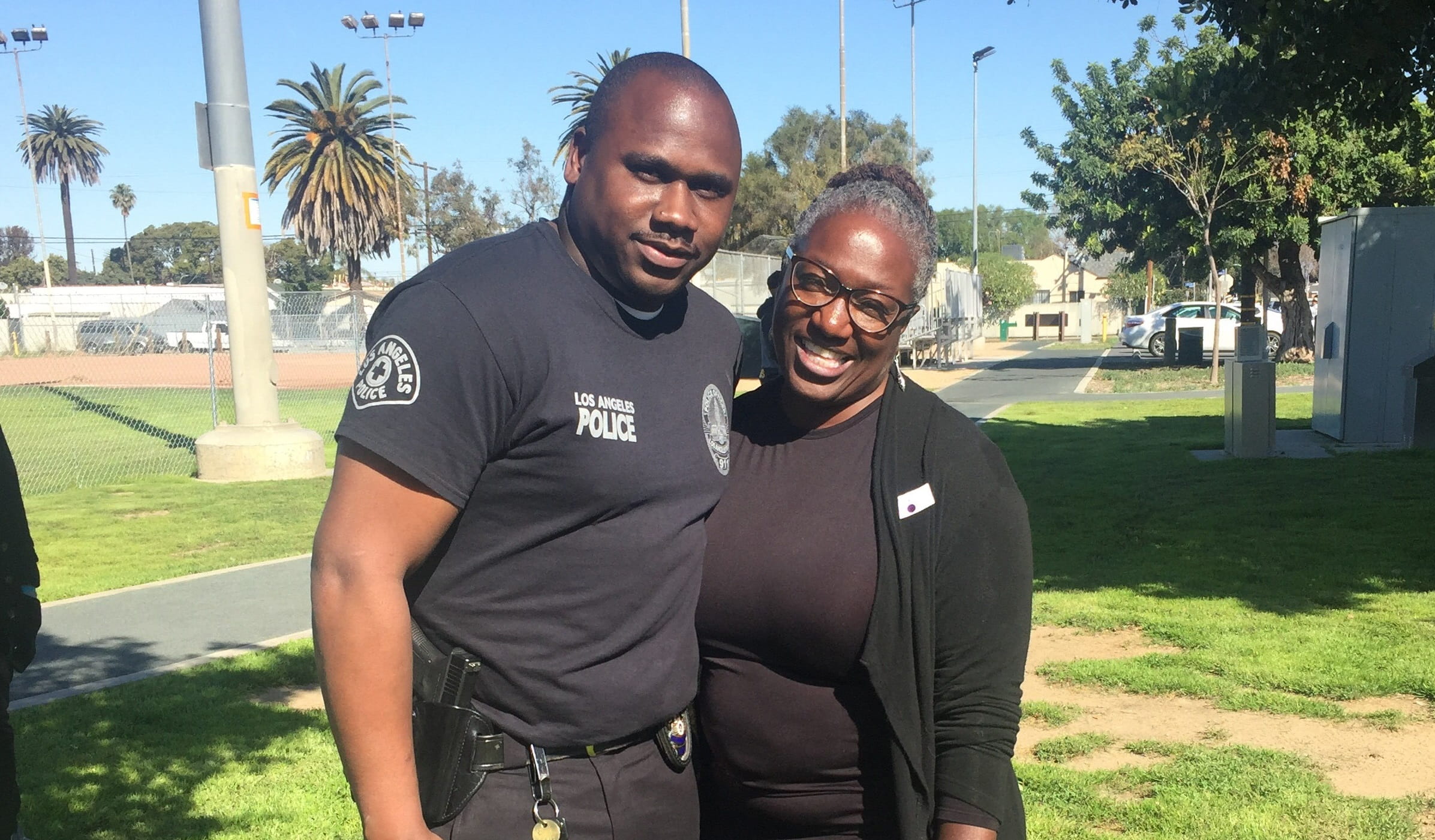Efforts to mitigate impact of social, economic inequities
By American Heart Association News

Harvard Park has seen its fair share of gang violence. For years, things were so bad that residents of the South Los Angeles neighborhood feared running errands.
Longtime resident Ellen Pace was even reluctant to exercise at the city park across the street from her home. But today she’s able to exercise there with neighbors and crime is down, largely because the Los Angeles Police Department assigned officers to the park last year.
Around the same time, the American Heart Association launched a program in the neighborhood called Community STEPS(link opens in new window), with the acronym standing for Strategic dialogue That’s Empowered by Public Safety. Pace said the weekend walks with police officers, cooking demonstrations, blood pressure screenings and other wellness activities offered at the Jackie Tatum/Harvard Recreation Center have been “like icing on the cake.”
“For [residents], being able to come out to the park and spread out and just enjoy themselves is a big deal,” said Pace, a 63-year-old retired assistant principal who exercises regularly to control her high blood pressure.
The initiative isn’t unique. Other efforts targeted to underserved communities around the country are using this so-called health equity approach to address a laundry list of health disparities related to income, race, public housing, access to healthy foods and other factors.
In Washington state, for instance, the health department helps rural communities recruit primary care doctors to help reduce chronic health problems in those areas. In Boston and southeast Michigan, a new health initiative is getting its start. Called the AHA Social Impact Fund(link opens in new window), it will empower local residents, community organizations, educators, entrepreneurs and others across the country by funding their ideas to improve health in their communities that have been affected by health inequities tied to educational opportunities, healthy food access and economic growth.
Through its EmPowered to Serve Urban Health Accelerator, the AHA also offers training and grants for community-based ideas that change behaviors, expand access and improve long-term health by overcoming challenges in urban communities. Some of those funded include Gospel Run, a Chicago-based organization that taps into urban church communities to promote fitness, and the MEANS database that connects soup kitchens and homeless shelters across the country with fresh food that would otherwise go to waste.
For several decades, public health researchers have known that access to good schools, clean environments, transportation options and other social factors affect a person’s health.
Dr. Paula A. Braveman, director of the Center on Social Disparities in Health at the University of California, San Francisco, has studied health disparities for over three decades. Her work has focused on African-Americans, Hispanic-Americans and other historically vulnerable groups.
The harmful legacy of racial and ethnic discriminatory practices in schools, banking institutions, the courts and other spheres of society plays a “massive role” in health disparities seen among minority groups today, said Braveman, pointing to federal data that show African-American adults are more likely than their white peers to die from heart disease and stroke.
“It is very important to have a sense of that and to understand that what we have right now is a situation where there’s just wasted human potential,” said Braveman. “We could have a much more economically productive society if everybody was healthy.”
In Los Angeles, patrol officer Joseph A. Marrone said he’s seen how the team effort between the city’s police department, parks and recreation department and the AHA has benefited Harvard Park’s residents and the officers in ways that go beyond fighting crime.
At a health screening at the park last year, one of his colleagues learned his blood pressure was dangerously high. Marrone said he’s walked away with good tips on how to take better care of himself.
The 22-year veteran of the department said he can tell how much Harvard Park residents appreciate — and need — the attention and health information they are getting.
“Everyone has a vital stake in reaching out to the community,” he said.
Inspired by neighbors who’ve gotten healthy, Pace, who’s a member of her neighborhood council, said she wants to do more to help the community’s well-being. One of her goals is to get a permanent farmers market at the park.
“The long-term investment is invaluable,” she said.





